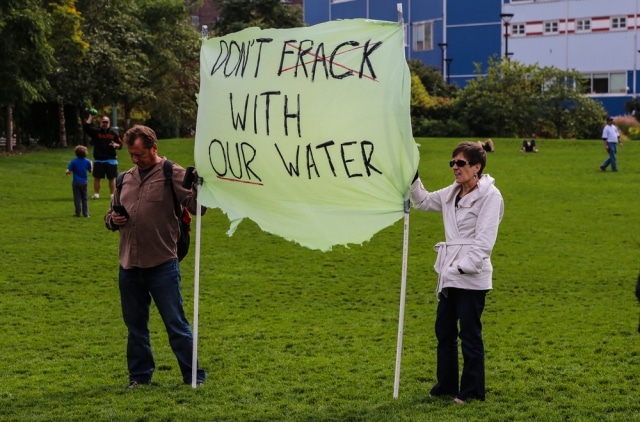A farming company in Kern County, California, has sued four oil producers over claims that their faulty wastewater injection methods led to the contamination of groundwater it uses for irrigation.
Palla Farms LLC, a ninety-two-year-old family farm operation, says it had to tear out hundreds of cherry trees due to high levels of salt and boron in the groundwater it has used to irrigate its crops for the past 25 years. The company claims its almond orchard has also experienced production declines.
Palla Farms’ suit alleges that the four oil companies—Crimson Resource Management Corp., Dole Enterprises Inc., E&B Natural Resources Management Corp. and San Joaquin Facilities Management Inc.—violated state environmental regulations when disposing of produced water, drilling mud, and flowback water from fracking, which led to the contamination of the groundwater.
The Bakersfield Californian has the details on the allegations:
Using aging and sometimes faulty injection wells, Palla alleges, the defendants disposed of water materials in violation of government rules for disposal operations. Its suit says Dole failed to report the pressure at which it was injecting fluids and neglected to conduct annual mechanical integrity tests.
Crimson not only failed to properly report injection pressure at 15 of its 18 disposal wells, Palla claims, but in well data the company did provide, the company apparently used excessive pressure.
The lawsuit also says the oil companies neglected to conduct a review to make sure there were no idle water wells nearby. In fact, Palla says there were three such wells within 200 feet of its farm and 20 or more within two miles.
The four companies also failed to provide fluid treatment plans, chemical analyses of liquid being injected or geological studies, all of which the suit says are required by law.
The lawsuit said the defendants knew or should have known their actions may have caused harm because of a 2011 U.S. Environmental Protection Agency audit finding California injection well operations were not up to federal groundwater protection standards.
Contamination of water sources from fracking operations has become an issue very much pushed to the forefront of the debate as California’s epic drought continues unabated.
On July 7, for instance, California’s Division of Oil, Gas and Geothermal Resources issued a shutdown order to seven different energy companies saying that they may have injected wastewater into aquifers that could be a source of drinking water, posing a “danger to life, health, property, and natural resources.”
Environmental activists in the Golden State are calling on Governor Jerry Brown to put a stop to water-intensive fracking, claiming that it is making the drought worse.
Image Credit: NEW YORK CITY – OCTOBER 19 2013: Food & Water Watch sponsors a rally against fracking in New York City by a katz / Shutterstock.com
Subscribe to our newsletter
Stay up to date with DeSmog news and alerts






